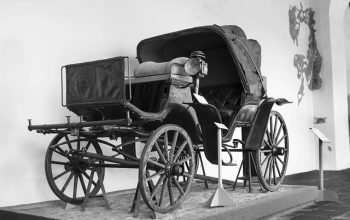When considering a vehicle purchase, due diligence is paramount. A reliable car condition verification process, facilitated by a trusted VIN check, stands as the cornerstone of this assessment. This critical step delves into the car’s history, revealing past accidents, title status, and odometer readings, thereby offering a clear picture of its provenance and integrity. By employing licensed vehicle verification services, buyers can establish the legitimacy of their prospective purchase. This article elucidates the importance of such checks in the realm of used car verification, ensuring potential owners make well-informed decisions with comprehensive details at hand, thereby safeguarding their investment and guaranteeing vehicle reliability.
- Understanding the Significance of a VIN Check in Car Condition Verification
- The Role of Licensed Vehicle Verification in Establishing Car Legitimacy
- Comprehensive Details Unveiled Through a Used Car Verification Process
- Ensuring Vehicle Reliability with a Trustworthy Car Inspection
- Accident History Verification: A Key Factor in Assessing a Car's Past and Potential Safety Risks
Understanding the Significance of a VIN Check in Car Condition Verification

When considering a used car purchase, conducting a comprehensive vehicle verification process is paramount. A licensed vehicle verification service that includes a VIN check plays a critical role in assessing the car’s condition and legitimacy. This process allows potential buyers to uncover important details about the vehicle’s past, which is essential for informed decision-making. The Vehicle Identification Number, or VIN, serves as a unique identifier that encapsulates vital information about the car’s manufacturing history, including its odometer readings and accident history verification. This data enables a trustworthy car inspection that transcends visual appraisal, offering insights into potential hidden issues that could affect the vehicle’s safety and performance. By ensuring the car has a clear title, free from liens or undisclosed incidents, buyers can proceed with greater confidence and peace of mind. A VIN check is an indispensable tool in the used car verification process, offering a transparent overview of the vehicle’s history, which is pivotal for safeguarding against fraudulent activities and ensuring that the car is indeed legitimate and roadworthy. This thorough examination is a cornerstone of due diligence for any individual looking to purchase a pre-owned vehicle. It underscores the importance of a meticulous vehicle legitimacy check, which goes beyond surface-level evaluations to reveal the true condition of the car, thereby protecting both the buyer’s investment and their safety on the road.
The Role of Licensed Vehicle Verification in Establishing Car Legitimacy

When considering a used vehicle, the legitimacy of the car is paramount. A licensed vehicle verification service plays a critical role in assessing and confirming the authenticity and condition of the car. This process involves a thorough inspection that goes beyond a mere visual assessment. It encompasses a detailed examination of the vehicle’s history, ensuring potential buyers have access to accurate and comprehensive information about the car’s past. The VIN (Vehicle Identification Number) check serves as the cornerstone of this verification, providing a window into the car’s condition verification. It reveals critical data, including accident history, title status, and odometer readings. This data is indispensable for discerning buyers who wish to make an informed decision about their purchase. By leveraging databases accessible only to licensed professionals, these services can uncover hidden issues that may affect the car’s safety, reliability, and value. As a result, a trustworthy car inspection conducted by a certified provider is not just a formality but a vital step in the process of vehicle legitimacy check, ensuring peace of mind for both the buyer and seller.
Comprehensive Details Unveiled Through a Used Car Verification Process

When considering the purchase of a used vehicle, conducting a thorough car condition verification is paramount. A licensed vehicle verification process, often facilitated by a Vehicle Identification Number (VIN) check, unearths critical information that significantly influences the decision-making process. This process goes beyond surface-level assessments, offering insights into the car’s legitimate history and overall reliability. A trustworthy car inspection through a VIN check provides potential buyers with an accurate account of the vehicle’s past, including any reported accidents, title status, odometer readings, and more. This data is indispensable for ensuring that the car has not been salvaged or branded as a lemon, and that its mileage aligns with its physical condition. The vehicle legitimacy check serves as a gatekeeper, safeguarding buyers from potential pitfalls associated with fraudulent vehicles. It’s an essential step in the used car verification process that confirms the authenticity of the car’s history, enabling informed and confident purchasing decisions. By accessing this comprehensive information, car owners can navigate their choices with transparency and trust, ensuring they are investing in a vehicle that aligns with their needs and expectations.
Ensuring Vehicle Reliability with a Trustworthy Car Inspection

When considering a pre-owned vehicle, conducting a comprehensive car condition verification is paramount to ensure vehicle reliability. A licensed vehicle verification serves as the first line of defense in discerning the authenticity and integrity of the automobile you’re evaluating. It encompasses a thorough examination of the car’s history, which includes its accident history verification, title status, and odometer readings. This process is instrumental in revealing any past incidents that may have compromised the vehicle’s structural or operational soundness. By delving into the car’s past, potential buyers can make well-informed decisions with the confidence that they are investing in a reliable vehicle.
A vehicle legitimacy check extends beyond mere surface assessments; it is an intricate procedure that involves verifying the vehicle identification number (VIN) to authenticate its origins and ensure it has not been reported stolen or salvaged. Used car verification is a critical aspect of this process, as it confirms the car’s history and current condition. A trustworthy car inspection is not solely about identifying wear and tear but also about uncovering any signs of tampering or previous repairs that may affect the vehicle’s performance and longevity. This due diligence safeguards the buyer’s interests, providing peace of mind that the car has been thoroughly vetted for reliability before the purchase is finalized.
Accident History Verification: A Key Factor in Assessing a Car's Past and Potential Safety Risks

When considering the purchase of a used vehicle, obtaining a comprehensive accident history verification is a pivotal step in assessing the car’s past and potential safety risks. This critical information is not always visible to the naked eye; therefore, a trusted VIN check is indispensable for discerning the true condition of the car. Such a check provides a detailed account of the vehicle’s history, including any prior collisions or significant damages, which can significantly impact the car’s structural integrity and safety features. By undergoing a licensed vehicle verification process, potential buyers can uncover critical data that influences their decision-making, ensuring they are fully informed about the vehicle’s legitimacy and condition. A trustworthy car inspection that includes accident history verification is a cornerstone of due diligence for any individual looking to invest in a used car. It offers peace of mind by revealing whether the vehicle has been involved in accidents that could affect its performance, value, or safety. This information is instrumental in determining the potential risks one may be taking by purchasing a car without this vital insight. In essence, a thorough accident history verification is an integral component of the used car verification process, enabling consumers to make informed choices and ensuring they do not inadvertently become the next owner of a car with hidden safety concerns.
When considering the acquisition of a used vehicle, conducting a thorough and licensed vehicle verification process is indispensable. This critical step, often encapsulated by a trusted VIN check, offers invaluable insights into the car’s condition, history, and potential risks. It encompasses everything from previous accidents to odometer readings, all of which are pivotal for assessing vehicle legitimacy and reliability. A comprehensive used car verification empowers buyers with the necessary information to make well-informed decisions, ensuring they invest in a car that aligns with their needs and safety standards. Thus, integrating a trustworthy car inspection, particularly one that includes accident history verification, stands as a cornerstone of due diligence for any prospective vehicle purchase.



